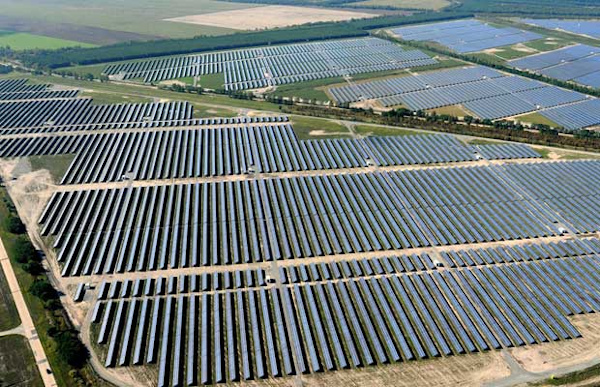According to India Ratings and Research (Ind-Ra), the solar production-linked insurance (PLI) scheme will support 8-13% of photovoltaic energy plant requirements until 2029-30 and will help grow 20 gigawatts (GW) of energy in the next five years.
As per Ind-Ra estimates the Ministry of New and Renewable Energy’s (MNRE) allocation of funds worth Rs. 45 billion (Rs 4,500 crore) (US$ 612.54 million) to the solar module manufacturing industry would gain sales of 20 GW from capacity built under the PLI scheme over the five-year implementation period.
It added it will happen considering complete localization (or up to 30 GW in case of 65% localisation).
It also involves the approval of the PLI project, which will result in 4-6 GW of annual revenue from the commissioning of the beneficiary manufacturing facilities over the next five years.
The scheme could enable India to add an additional 8-12 GW of annual solar cell/module manufacturing capacity. PLI would gain sales up to 50% of the production capacity set up by the winning bidder. This report is based on a base PLI rate of Rs. 2.25 (US$ 0.031) per watt power and all-new (greenfield) expansion.
If the plants gain greater module efficiency and temperature coefficient than the minimum requirement defined in the notification, the capacity to benefit from the scheme may be reduced further from the stated 20 GW level.
As per the report, India has set a goal of achieving 280 GW of solar power plants installed by FY30. Approximately 240 GW of this is in the pipeline or has yet to be implemented. It means that, aside from improving domestic manufacturing capacity, only 8-13% of this planned requirement will benefit directly from the PLI scheme until FY30 (assuming localisation is between 65 and 100%).
The report added that the overall extension in timelines for commissioning of solar power generation developments is limited to six months, according to an MNRE notification dated March 30, 2021. Solar power developers are also on an edge, as they must complete projects before April 1, 2022, when the 25% / 40% basic customs duty takes effect for solar cells and modules, respectively.
Given the time required for domestic manufacturing capacities to be established, these capacities would still have to be built using imported modules.
Source: IBEF
You may also like
-
Navigating India’s Skill Landscape
-
Trade Connect E-platform For Exports Is Single Window, Fast, Accessible And Transformational: Shri Piyush Goyal
-
India-us Working Together In Areas Like Critical Minerals, Supply Chains And Advanced Technologies: Shri Piyush Goyal
-
Cabinet Approves Health Coverage to All Senior Citizens of the Age 70 Years and Above Irrespective of Income
-
Cabinet Approves PM Electric Drive Revolution in Innovative Vehicle Enhancement (PM E-DRIVE) Scheme With An Outlay of ₹.10,900 Crore
